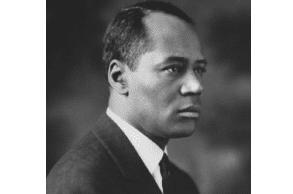In honor of Juneteenth, we want to recognize a few African American attorneys who helped shape the legal space. Since the founding of our nation more than 240 years ago, African Americans have experienced, bore witness to, suffered, and ultimately confronted the systemic racial discrimination present in virtually all aspects of everyday life. Although one would hope the legal profession, based on fundamental ideas of equality and due process, would be mostly immune from such a tarnished reputation, reality failed to meet the rhetorical standard set by the ideals of the law.
Here are eight African American attorneys who pioneered the way for generations of legal scholars by challenging the preconceived bias and bigotry of an entire nation:
- Macon Bolling Allen
- Charlotte E. Ray
- James Weldon Johnson
- Charles H. Houston
- Thurgood Marshall
- Jane Bolin
- Constance Baker Motley
- Fred Gray
1. Macon Bolling Allen (1816-1894)
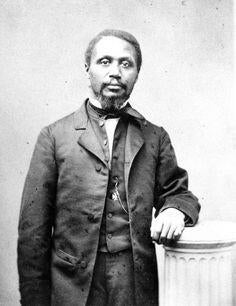
Considered to be both the first African American attorney to practice law in the United States and to hold a judicial position, Macon Bolling Allen broke numerous barriers. He passed the Maine bar exam in 1844, but racial prejudice in Boston kept him from making a living as a lawyer, so instead, he embraced a rigorous qualifying exam and became Justice of the Peace of Middlesex County, Massachusetts in 1848. In doing so, Allen became the first African American in the United States to hold a judicial position, despite not being considered a U.S. citizen under the Constitution at the time.
2. Charlotte E. Ray (1850-1911)
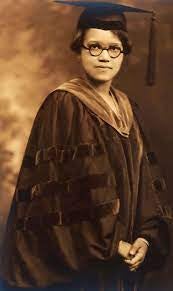
Charlotte E. Ray was the first black female lawyer in the United States. She studied at the Institution for the Education of Colored Youth in Washington, D.C., and went on to teach and study law at Howard University. Upon admission to the District of Columbia bar in 1872, Ray became not only the first woman admitted to practice in the District of Columbia but also the first black woman licensed to practice law in the United States.
Unfortunately, Charlotte Ray’s career was cut short due to racial prejudice. She opened a law office in the nation’s capital but was unable to obtain enough clients to sustain her practice. She ultimately returned to New York City to teach in the public school system.
3. James Weldon Johnson (1871-1938)
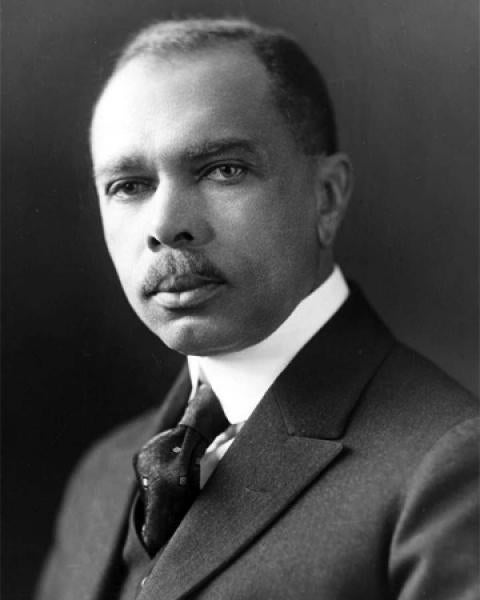
Best known for his role in the creation of the Harlem Renaissance, James Weldon Johnson was not just an attorney; he was also an early civil rights activist and a leader of the NAACP. After founding a newspaper called The Daily American, Johnson became the first African American attorney to pass the Bar in the state of Florida. He was also a noted author; his published works include The Autobiography of an Ex-Colored Man (1912) and God’s Trombones (1927).
4. Charles H. Houston (1895-1950)
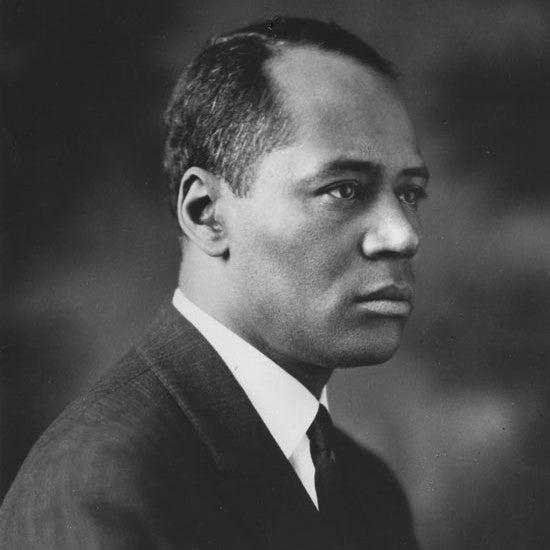
Charles H. Houston served as the Harvard Law Review’s first African-American editor, the vice dean of Howard University’s law school, and head of the NAACP’s legal fight against “separate but equal” schools, culminating to the landmark Supreme Court decision in Brown v. Board of Education.
During his time at the NAACP, Houston accumulated legal precedents against the “separate but equal” doctrine, specifically in cases related to education for African Americans. Arguably his most significant victory came in 1938 when the Supreme Court ruled in Missouri ex rel. Gaines v. Canada that it was unconstitutional to give African-American students funds to attend an out-of-state law school instead of offering them admission to the only law school in the state. He was widely known as the mentor of Thurgood Marshall.
5. Thurgood Marshall (1908-1993)

Thurgood Marshall was the first African American justice of the Supreme Court, serving from 1967-1991. After studying law at Howard University, Marshall went on to serve as counsel to the NAACP. In 1954, he won the seminal case of Brown v. Board of Education, which signaled the end of racial segregation in American public schools.
In 1967, President Lyndon Johnson nominated Marshall to serve on the United States Supreme Court. Initially, the makeup of the court allowed Marshall to be an influential liberal voice on landmark cases including Roe v. Wade and Furman v. Georgia. However, as Republican presidents appointed eight consecutive conservative justices, the court took on a decidedly different tone, and Marshall’s later tenure was defined more by his dissents defending the liberal principles that had since been overturned.
6. Jane Bolin (1908-2007)
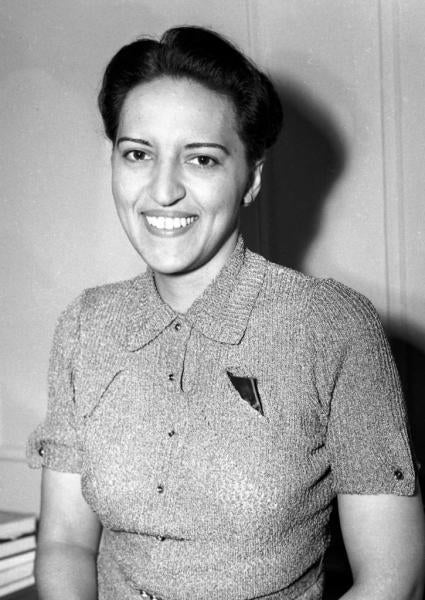
The first African American female judge in the United States, Jane Bolin earned her J.D. degree at the Yale Law School in 1931, where she was also the first African American woman to graduate.
After passing the New York bar exam, New York City Mayor Fiorello LaGuardia appointed Bolin to serve as Judge of the Domestic Relations Court in 1939. During her 40 years on the bench, she achieved two significant civil rights reforms: she oversaw the assignment of probation officers in the court system without regard for race or religion, and she also championed a provision that publicly funded yet privately owned child-care agencies must accept children without regard to racial or ethnic background.
7. Constance Baker Motley (1921-2005)
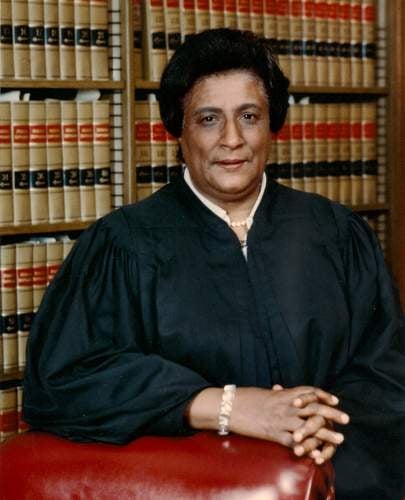
Constance Motley was the first African American woman to be appointed as a federal judge. She was the first African American woman to serve as a member of the New York State Senate. Additionally, Motley was the first woman to serve as Manhattan borough president.
Motley was keenly involved in the civil rights movement, once visiting the Rev. Dr. Martin Luther King, Jr. in jail. She also sang freedom songs in churches that had been bombed and spent a night under armed guard with civil rights leader Medgar Evers, who was later murdered.
Her legal contributions cannot be overlooked, as Judge Motley was a force to be reckoned with in the courtroom. Her contributions to the battle to extend civil rights for the disenfranchised is an invaluable chapter of American jurisprudence.
8. Fred Gray (1930-)
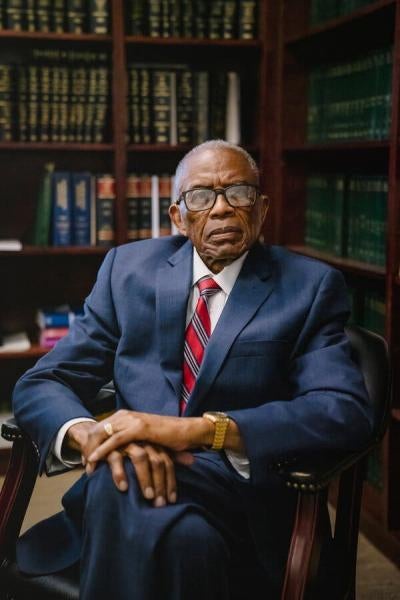
During the Montgomery bus boycott, Fred Gray played a vital role in the successful desegregation of Montgomery buses, both as legal counsel and as a strategist. When Claudette Colvin and Rosa Parks were criminally charged for refusing to give up their seats to white passengers, Gray defended the women in court. He also challenged the constitutionality of Alabama laws mandating segregation on buses in Browder v. Gayle, which was affirmed in 1956 by the United States Supreme Court.
In 1970, Gray went to the Alabama State Legislature to serve as an elected representative from Tuskegee. His election made him one of the ?rst two African American public of?cials to serve in the legislature since the Reconstruction era. President Jimmy Carter nominated Gray to the U.S. District Court for the Middle District of Alabama in 1979, but Gray was forced to withdraw his name from consideration in light of massive opposition from conservative political foes.
Conclusion
For all its specifications about the provision of equality, the American legal system must be examined for the various instances in which it has failed to follow through on those promises to its African American citizens. Since colonial times, African Americans have comprised the backbone of a country that was founded on principles of liberty from which they were expressly excluded for far too long.
This Juneteenth, we acknowledge a fraction of the African American attorneys whose trailblazing careers shaped the American legal system, gearing it towards bridging the gap between its inequitable promises of liberty and their actual application to all Americans, regardless of the color of their skin. These men and women, in their perseverance and commitment to upholding the law, have challenged biases, discrimination, and imbalance of opportunity to secure the American promises of liberty and justice–for all.

